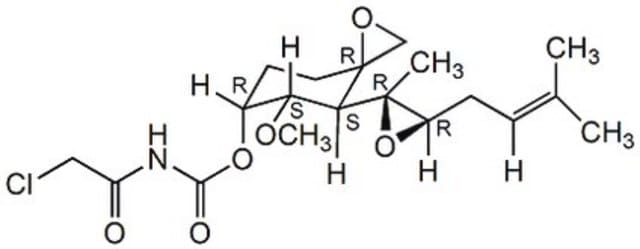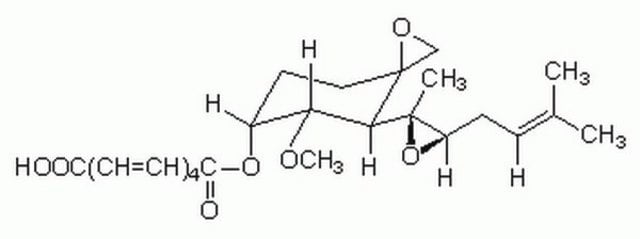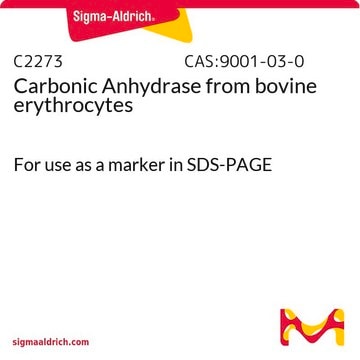T1455
TNP-470
≥98% (HPLC)
Synonym(s):
(Chloracetyl) carbamic acid (3R,4S,5S,6R)-5-methoxy-4-[(2R,3R)-2-methyl-3-(3-methyl-2-butenyl)oxiranyl]-1-oxaspiro[2.5]oct-6-yl ester, AGM-1470, NSC 642492, O-Chloracetyl-carbamoyl fumagillol
About This Item
Recommended Products
Quality Level
Assay
≥98% (HPLC)
form
solid
solubility
DMSO: >15 mg/mL
originator
Takeda
storage temp.
−20°C
SMILES string
CO[C@@H]1[C@@H](CC[C@]2(CO2)C1[C@@]3(C)O[C@@H]3C\C=C(\C)C)OC(=O)NC(=O)CCl
InChI
1S/C19H28ClNO6/c1-11(2)5-6-13-18(3,27-13)16-15(24-4)12(7-8-19(16)10-25-19)26-17(23)21-14(22)9-20/h5,12-13,15-16H,6-10H2,1-4H3,(H,21,22,23)/t12-,13-,15-,16-,18+,19+/m1/s1
InChI key
MSHZHSPISPJWHW-PVDLLORBSA-N
General description
Biochem/physiol Actions
Features and Benefits
Preparation Note
Other Notes
Storage Class Code
11 - Combustible Solids
WGK
WGK 2
Flash Point(F)
Not applicable
Flash Point(C)
Not applicable
Certificates of Analysis (COA)
Search for Certificates of Analysis (COA) by entering the products Lot/Batch Number. Lot and Batch Numbers can be found on a product’s label following the words ‘Lot’ or ‘Batch’.
Already Own This Product?
Find documentation for the products that you have recently purchased in the Document Library.
Our team of scientists has experience in all areas of research including Life Science, Material Science, Chemical Synthesis, Chromatography, Analytical and many others.
Contact Technical Service







